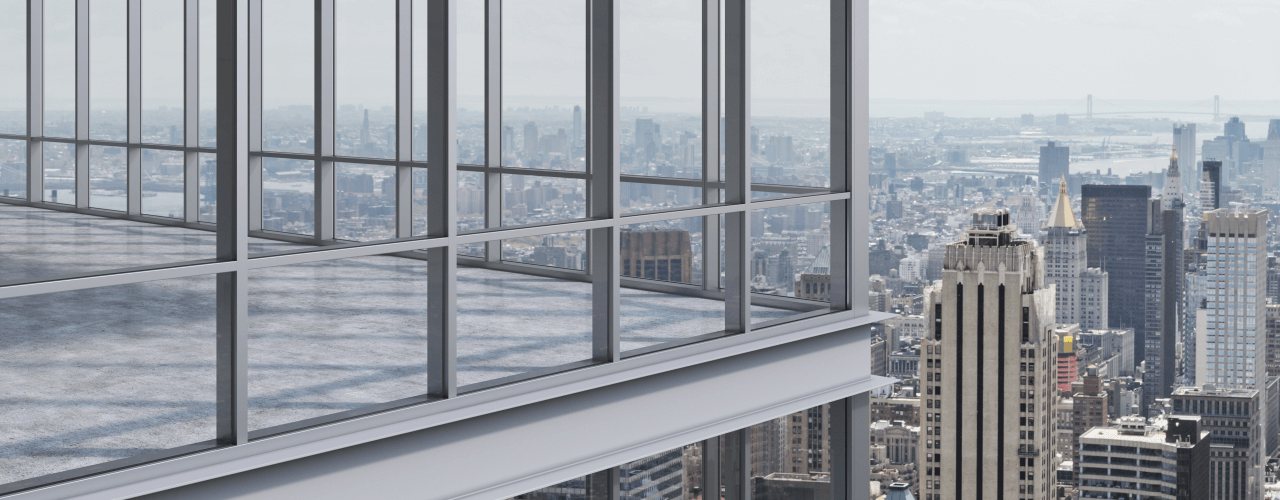At one time or another, all business owners face the age-old question of whether it’s better to buy or lease office space. It’s not an easy choice due to the pros and cons of both. To help you make the right decision, here are some of the most important factors to consider when deciding if it’s better to buy or lease office space for your business.
Pros & Cons of Buying Office Space
If you have the time and capital to manage and invest in office property, buying office space might be the best option. Some of the most important pros and cons to consider before buying office space for your business include:
Pros of buying office space
- Build equity for your business: The value of commercial real estate historically increases over time. Owning office space adds value to your business, and with enough equity, you can use your building as collateral when applying for other business loans.
- Tax advantages of owning real estate: Mortgage interest and taxes are fully deductible business expenses. The IRS also allows commercial property owners to depreciate a building over 39 years, which lets investors use a non-cash deduction to reduce taxable net income.
- Create passive income: If you have extra office space, you can rent it out and create an additional income stream for your business. Office buildings owners can also add value to their investment by leasing out exterior space for advertising signage or renting out roof space on long-term leases to cell phone companies.
Cons of owning office space
- Commercial real estate is capital intensive: Loans for commercial real estate have bigger down payments and higher interest rates, with shorter terms than non-commercial loans. In addition to tying up a lot of capital, owning your office space also means you’ll need to pay for your renovations instead of negotiating TIs with the landlord.
- Operating expenses reduce business cash flow: Office building maintenance, property taxes, insurance, routine repairs, and unexpected capital repairs like replacing a broken HVAC system or a riser system can take away money needed for a growing business.
- Fewer choices: Owning office space for your business can be a Catch 22. If you own space that’s too small, your building could limit your business growth. On the other hand, if you buy an office building that ends up being too big, selling can take a lot of time with extra added expenses from marketing and broker fees.
Pros & cons of leasing office space
Unless you go with a flexible coworking space, signing a traditional long-term lease for office space is still a major financial commitment. Here are some of the biggest pros and cons of leasing office space:
Pros of leasing your office space
Minimal financial commitment: Most commercial office leases only require one or two months of rent as a refundable security deposit. Provided you’ve met the terms and conditions of your lease, you’ll get that money back if you ever move.
High-end property with a prestigious business address: Purchasing prime property in well-known locations requires a lot of capital. When you lease your office space, you have access to Class A office locations without tying up a lot of money that a growing business could put to better use.
Property repairs are handled by the landlord: Property repairs and maintenance can easily add up to thousands of dollars a year if you own office space. When you lease, the landlord or property manager can handle things like a broken air conditioning system or plumbing problem. However, make sure that your office lease specifies who is responsible for what.
Financial flexibility: Lease payments are deductible as a business operating expense, so you don’t have to worry about the complex depreciation calculations for real and personal property. Building operating expenses like trash pickup and utilities are often shared between the landlord and tenant. Leasing office space also makes it much easier to grow or downsize your business – you can sublease your office space, or simply move out when the lease has ended.
Cons of leasing office space
Paying rent doesn’t build equity: Leasing office space means your rent payments go toward the owner’s equity and not yours.
Rent payments increase annually: Office leases usually have an annual rent increase written into the contract. In addition to paying more rent each year, modified gross and triple net leases let the landlord pass through some or all of the building operating expenses to the tenant.
Unresponsive ownership: Not all office building owners and property management companies are created equal. Sometimes, investors and managers do as little as possible to keep the property maintained. To avoid getting stuck in a bad lease, visit with some of the other tenants in the building to see what they have to say about the responsiveness of the office building owner.
Leasing office space vs. buying
The decision to lease or buy office space hinges on a number of factors: Type of business, where your business is in the growth cycle, available capital, and long-term goals. To avoid making the wrong decision, it’s always a good idea to speak with your tax adviser or financial planner.
To recap, some of the pros and cons of buying vs. leasing office space include:
- Buying commercial office space requires a lot of capital that might better be used to directly fund your business growth.
- Rent expense is fully deductible, while office building owners can use depreciation to reduce taxable cash income.
- Owning office space could mean you’re stuck with a space that’s too big or too small, while leasing lets you adapt more quickly to changing business conditions.









